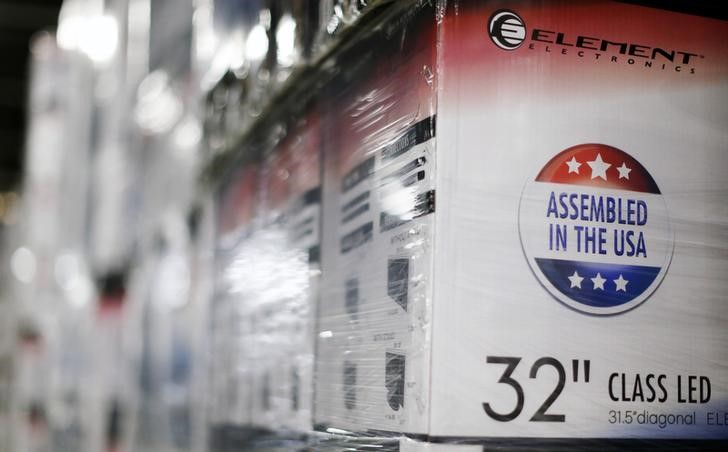WASHINGTON (Reuters) - New orders for key U.S.-made capital goods rose more than expected in May and shipments increased solidly, suggesting some stabilizing in business spending on equipment after it fell early in the year.
The Commerce Department said on Wednesday orders for non-defense capital goods excluding aircraft, a closely watched proxy for business spending plans, increased 0.4% last month amid increases in demand for machinery, and computers and electronic products. These so-called core capital goods orders dropped by an unrevised 1.0% in April.
Economists polled by Reuters had forecast core capital goods orders edging up 0.1% in May. Core capital goods orders rose 2.3% on a year-on-year basis.
Shipments of core capital goods increased 0.7% last month after an upwardly revised 0.4% gain in the prior month. Core capital goods shipments are used to calculate equipment spending in the government's gross domestic product measurement.
They were previously reported to have been unchanged in April. Business spending on equipment contracted in the first quarter for the first time in three years. A bitter trade war between the United States and China has dented business confidence, impacting investment.
Federal Reserve Chairman Jerome Powell last week acknowledged the weak business spending and said many policymakers "cited the investment picture and weaker business sentiment ... as supporting their judgment that the risk of less favorable outcomes has risen."
As a result of these growing risks to the economy, especially related to the trade war between Washington and Beijing, and low inflation, the U.S. central bank last Wednesday signaled interest rate cuts starting as early as July.
The weak business spending is weighing on production at factories. Manufacturing, which accounts for about 12% of the economy, is also being undermined by an inventory overhang, especially in the automobile industry, which has resulted in fewer orders being placed with factories.
A slowing global economy and Boeing's move to cut production of its troubled 737 MAX aircraft is also hurting manufacturing.
In May, orders for machinery rose 0.7%. Orders for computers and electronic products increased 0.8%. There was also an increase in orders for primary metals. Orders for electrical equipment, appliances and components fell 0.4%.
Overall orders for durable goods, items ranging from toasters to aircraft that are meant to last three years or more, dropped 1.3% in May after declining 2.8% in the prior month.
Orders for transportation equipment tumbled 4.6% after diving 7.6% in April. Motor vehicles and parts orders rebounded 0.6% last month. Orders for non-defense aircraft plunged 28.2%.
Boeing (NYSE:BA) reported on its website that it had received no aircraft orders in May after getting orders for four planes in April. Boeing's fastest-selling MAX 737 jetliner was grounded in March following two fatal plane crashes in five months. It has cut back production and suspended deliveries of the aircraft.
Overall durable goods shipments rose 0.4% and inventories increased 0.5% in May.
